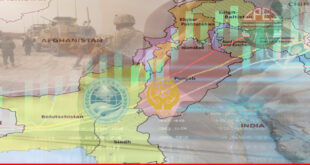Muhammad Ali Jinnah envisioned Pakistan as a democracy in which rights and freedoms of various communities are safeguarded and the Federation, sub national governments function in harmony within the parameters of the Constitution. He underscored the importance of identifying ourselves as Pakistanis first and not Baluchis, Pathans, Sindhis, Bengalis, Punjabis and so on. Most countries in South Asia and particularly India and Pakistan adopted the parliamentary system as founding fathers of these countries were all English Barristers. Every country has unique circumstances, endowments and spatial distributions, which must be accounted for. We need to evolve our political, economic and social practices that are responsive to the special needs of the time.
The parliamentary system provides ample checks to ensure both stability and democracy, provided there is a will to work it and the political class values the system more than its immediate gains. Each institution should perform its duty diligently while remaining in its constitutional domain with sincerity. Accountability and free speech are at the crux of democratic governance to guard democracy from the tyranny of the majority and the passions of the mob.
Initiating the 8th NFC award:
Strengthening a federation also entails having clear and balanced delegation of responsibilities between the federation and the sub national governments. At this time the government must be looking forward to constituting the next NFC Award keeping in view the contributions and specific circumstances and characteristics of all regions. According to Article 160 of the Constitution of Pakistan, the National Finance Commission has to be constituted every five years by the President of Pakistan. The 7th NFC Award completed its tenure in June 2015; therefore, it is a constitutional obligation to initiate deliberation on the 8th NFC Award and announce it as early as possible.
Alongside the 8th NFC Award the government must also plan to hold the next ‘Population Census’ as soon as possible. These matters are of utmost importance towards strengthening the Federation and all stakeholders must pay attention towards them. Population census is important as it guides allocation of resources, policy and development planning. We need to strengthen and deepen democratic values in our country for them to have practical value and its time we start rooting for them.
Foreign Policy matters need to be addressed in the Parliament. Relationship with neighboring states, national security matters, developing a comprehensive counter-terrorism narrative is necessary, requiring input and participation from stakeholders across regions and political entities. Pending NFC Award must also be formulated recognizing the changing needs and demands of the provincial governments. Post CPEC there might be some transformations that need to be made within the horizontal and vertical distributions of revenues. Also now we have local governments in place hence the provincial government must take their fiscal responsibilities more seriously. The Parliament must be reflective of the national spirit and highlight pressing economic and political agendas. The opposition parties must stress the government to hold the national population census soon so important demographic characteristics of every region are actually accounted for in policy making.
Economic performance of provincial governments post 7th NFC:
A Policy Brief “Growth of the Provincial Economies” by the Institute of Policy Reforms in 2015 highlighted some important features of provincial growth performance in the past few years.
While discussing the size, composition and growth performance of provincial economies it was shown that Punjab has a share of 54% in the national GDP in 2014-15. The next economy in size was Sindh, with a share of 30%. Khyber Pakhtunkhwa and Balochistan have shares of 13% and 3% respectively.
The emerging structural problem for Punjab has been the loss of the dynamism of agriculture. This is a reflection especially of the emerging water constraint. Consequently we see that the agriculture sector has shown a negative growth of 0.19 percent and whose contribution to GDP is around 21.1 percent, greater than the industrial sector. Agriculture of Sindh has also performed poorly over the last fifteen years, with an average growth rate of less than 2%. The services sector, especially trade, has also been impacted by periodic closures and dismal security situation. The growth rate has fallen to just over 3%. The breakdown of law and order in Karachi has led to a visible loss of momentum in the economy of Sindh. It is estimated that the annual cost of the troubled situation in Karachi is almost Rs400 billion. The report also presented the per capita GDP, PGDP for the province sat constant prices of 1999-2000. The PGDP annual growth rate for Punjab was estimated at 2.55%, Sindh was 1.38%, KPK at 3.05% whereas Balochistan was the lowest at 1.74% for 2014-15. The national PGDP stood at 2.51%.
Need for social development:
We need to fiscally strengthen sub-national governments to play an important role in the provision of basic social and economic services. The dilapidated condition of health and education in Balochistan and food security issue in Thar will entail efficient and pro-active, pro-poor governance. The quality of basic social services must improve as provinces have higher resources at their disposal post 7th NFC Award. Fiscal decentralization has provided a great “opportunity” for provinces to improve the well-being of their residents. In percentage terms, the increase in transfers to the provincial government ranges from 23.7 percent to 27.9 percent as a result of changes made in the distribution formula in the 7th NFC Award. The absorption capacity of the smaller provinces needs to be strengthened. Provinces will have to play a strong role in the national development scenario.
NFC- Secretariat will not only have to keep a database of provincial finance but be pro-active in communicating best practices and innovations taken by state governments both nationally and internationally. The 8th NFC must also take into account the SDGs (Sustainable Development Goals) and also emphasize gender empowerment and child protection in all provinces. Climate change is posing serious threat to well-being of people in different parts of the country in form of food security, earthquakes and other natural calamities. The 8th NFC must resolve all outstanding issues and focus on capacity building of the provinces to promote fiscal effort.
Social and economic inequalities still exist. Wealth is still concentrated in few hands. The great majority of people are still denied equal opportunities for health, wealth and happiness. Democracy contains within it seeds of justice, general welfare and progress. Thus safeguarding the position and interests of the smaller units in legislation and financial matters in the upcoming 8th NFC will be pivotal.
 PAGE Blog Business Weekly Magazine
PAGE Blog Business Weekly Magazine

